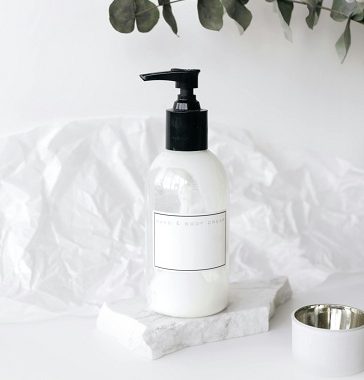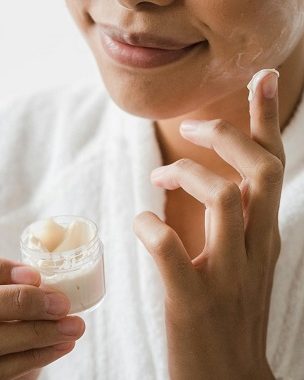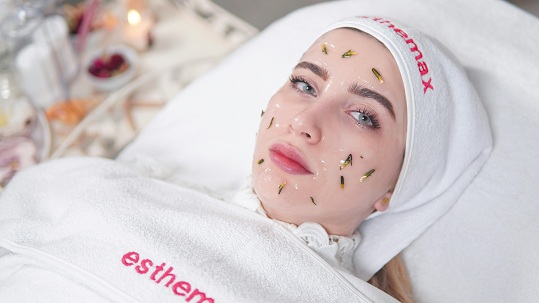
Acne is a common skin condition that affects individuals of all ages, causing distress and impacting self-est
Acne is a prevalent skin condition affecting people of all ages, impacting self-esteem and requiring effective management. While various factors contribute to acne development, understanding what worsens the condition is crucial. This article explores the elements that can make face acne worse and offers insights on managing them.
-
Poor Skincare Habits:
Poor skincare habits significantly exacerbate facial acne. When individuals use harsh products or neglect regular cleansing, it disrupts the delicate balance of the skin. The harsh products can strip the skin of essential oils, leading to increased sebum production as the skin tries to compensate.
Neglecting regular cleansing allows dirt and impurities to accumulate, clogging pores and fostering an environment for bacteria to thrive.
The result is heightened inflammation and a higher likelihood of persistent acne breakouts. Emphasizing the importance of a gentle and consistent skincare routine becomes paramount in maintaining a healthy complexion and preventing the worsening of facial acne.
-
Dietary Choices:
Diet plays a crucial role in acne severity, with research indicating that high-glycemic foods, dairy products, and saturated fats can exacerbate acne formation. High-glycemic foods, such as refined carbohydrates, can lead to increased insulin levels, triggering oil production and inflammation.
Dairy products may influence hormonal fluctuations, while saturated fats contribute to inflammation. To promote overall skin health and mitigate acne, adopting a balanced diet rich in fruits, vegetables, and whole grains is essential.
These nutrient-dense foods provide antioxidants, vitamins, and minerals that support skin regeneration and reduce the likelihood of inflammatory responses, contributing to a more resilient and clear complexion.
-
Hormonal Fluctuations:
Hormonal fluctuations play a significant role in acne development, particularly during pivotal life stages such as puberty, menstruation, pregnancy, and periods of heightened stress.
During these times, increased androgen levels stimulate the sebaceous glands, leading to excess oil production and a higher likelihood of acne flare-ups. Hormonal birth control, although effective for many, can influence acne differently for each individual.
While some may experience improvement, others may notice an exacerbation of acne symptoms. Understanding these hormonal dynamics is crucial in tailoring effective skincare and treatment strategies, emphasizing the need for personalized approaches to address the diverse impact of hormonal fluctuations on acne-prone skin.
Best acne scar removal products
-
Stress and Anxiety:
Chronic stress and anxiety significantly impact skin health by inducing hormonal changes that exacerbate acne. Stress triggers the release of cortisol and other stress-related hormones, leading to an overstimulation of sebaceous glands and increased production of skin oil (sebum).
This excess oil, combined with inflammation, creates an environment conducive to acne development and worsens existing conditions.
Managing stress becomes a critical aspect of acne prevention, as stress reduction techniques, such as mindfulness, exercise, and adequate sleep, can help regulate hormone levels and mitigate the adverse effects on the skin.
By prioritizing stress management, individuals can proactively address a key factor in the worsening of acne, promoting clearer and healthier skin.
-
Environmental Factors:
Environmental factors play a crucial role in exacerbating acne by exposing the skin to various challenges. Prolonged exposure to environmental pollutants, such as air pollution and particulate matter, can clog pores and contribute to inflammation.
Additionally, high humidity levels can intensify acne as excess moisture promotes bacterial growth. Harsh weather conditions, like extreme cold or heat, pose challenges to the skin’s natural protective barrier.
In harsh climates, the skin may lose its essential natural oils, prompting an overcompensation with increased sebum production. This imbalance can result in clogged pores and heightened acne severity.
Therefore, protecting the skin from environmental stressors through proper skincare and adjustments to daily routines is crucial for managing and preventing worsening acne.
Best acne scar removal products
-
Genetics:
Genetics exert a substantial influence on acne susceptibility, underscoring the role of family history in shaping an individual’s predisposition to persistent breakouts. When a person has relatives with a history of severe acne, there is an increased likelihood of inheriting genetic factors that contribute to skin conditions.
While genetic predisposition is beyond personal control, heightened awareness empowers individuals to adopt targeted management strategies. Understanding the genetic link aids in anticipating potential challenges and customizing skincare routines to address specific needs.
Additionally, individuals with a familial predisposition may benefit from early intervention and vigilant skincare practices to mitigate the impact of inherited factors.
While genetics lay the foundation for acne vulnerability, proactive measures and informed choices can help manage and minimize the impact of genetic influences on skin health.
Best acne scar removal products
-
Overuse of Topical Treatments:
Overusing topical treatments is a common pitfall in acne management. Individuals often experiment with numerous products, unaware that excessive application of those containing harsh chemicals can aggravate the skin.
Harsh ingredients may strip the skin of its natural oils, leading to dryness and increased sensitivity. This overdrive can trigger irritation, inflammation, and worsen existing acne lesions.
Therefore, it is imperative to exercise caution and adhere to dermatologist guidance when incorporating topical treatments into a skincare routine.
Dermatologists can provide personalized advice on suitable products and usage frequency based on an individual’s skin type and condition.
Striking a balance and using these treatments in moderation ensures effective acne management without compromising skin health, promoting a gradual and sustainable improvement in skin condition.
Ultimately, a prudent approach to skincare empowers individuals to harness the benefits of topical treatments while minimizing the risk of adverse reactions and exacerbation of acne symptoms.
Best acne scar removal products
-
Sleep Deprivation:
Sleep deprivation significantly affects skin health by disrupting essential repair and regeneration processes. During sleep, the body engages in cellular repair, collagen production, and the release of growth hormones that contribute to skin rejuvenation.
Inadequate sleep compromises these crucial functions, leading to a cascade of negative effects on the skin.
Lack of sufficient sleep contributes to increased inflammation, as the body’s ability to regulate inflammatory responses is impaired. This heightened inflammation can exacerbate existing acne lesions, making them more inflamed and prominent.
Moreover, the slowed healing of acne lesions is a consequence of inadequate sleep, hindering the skin’s ability to recover and repair damaged tissue effectively.
In addition to inflammation and delayed healing, sleep deprivation can disrupt the balance of hormones related to stress, further contributing to acne flare-ups. Elevated stress hormones may stimulate sebaceous glands, leading to increased oil production and clogged pores.
Prioritizing adequate sleep is integral to maintaining optimal skin health. It not only aids in preventing acne but also supports overall skin rejuvenation, promoting a clearer and more vibrant complexion.
Best acne scar removal products
Conclusion:
To achieve clear and healthy skin, understanding and addressing factors that worsen facial acne is pivotal. A comprehensive approach involving proper skincare, a balanced diet, stress management, and professional guidance significantly improves acne conditions.
Consulting a dermatologist for a personalized skincare routine and treatment plan is essential. By proactively addressing contributing factors, individuals can manage and mitigate the impact of facial acne on their skin and overall well-being.
Further Reading:
10 skin care habits that can worsen acne
Teen Acne: 8 Habits That May Make It Worse
FAQs:
What causes acne to get worse?
Acne worsens due to various factors, including poor skincare habits, dietary choices (such as high-glycemic foods and dairy), hormonal fluctuations (during puberty, menstruation, and stress), chronic stress and anxiety, exposure to environmental factors, genetic predisposition, overuse of harsh topical treatments, and inadequate sleep. These elements contribute to increased inflammation, excess oil production, and compromised skin repair processes, exacerbating existing acne lesions and triggering new breakouts. Addressing these factors through proper skincare, a balanced diet, stress management, and professional guidance is crucial for managing and preventing the worsening of acne.
�
What habits cause acne?
Habits that can cause acne include using harsh skincare products, neglecting regular facial cleansing, consuming a high-glycemic diet with dairy and saturated fats, experiencing hormonal fluctuations during puberty, menstruation, or stress, exposure to environmental pollutants and extreme weather conditions, overusing topical treatments, and inadequate sleep. These habits contribute to clogged pores, increased inflammation, excess oil production, and disrupted skin regeneration processes, ultimately exacerbating the development and severity of acne. Adopting a gentle skincare routine, maintaining a balanced diet, managing stress, and ensuring adequate sleep are crucial in preventing and managing acne.
�
How do you stop acne from getting worse?
To prevent acne from worsening, adopt a gentle skincare routine with non-comedogenic products. Avoid harsh scrubbing, and cleanse the face regularly. Maintain a balanced diet with emphasis on fruits, vegetables, and whole grains. Manage stress through relaxation techniques. Get adequate sleep to support skin regeneration. Consult a dermatologist for personalized advice and treatment. Avoid overusing topical treatments to prevent skin irritation.
�
What foods cause acne?
High-glycemic foods, such as sugary snacks and refined carbohydrates, can contribute to acne by increasing blood sugar levels and triggering insulin production. Dairy products, particularly skim milk, may exacerbate acne due to hormonal components. Foods rich in saturated fats, like fried and processed foods, can also contribute to skin issues. Some individuals may experience acne flare-ups from consuming iodine-rich foods, including certain seafood and iodized salt. Chocolate and other high-cocoa products have been linked to acne in some studies. While individual responses vary, maintaining a balanced diet with emphasis on fruits, vegetables, and whole grains can generally support skin health. Staying hydrated is also crucial for overall skin well-being.



